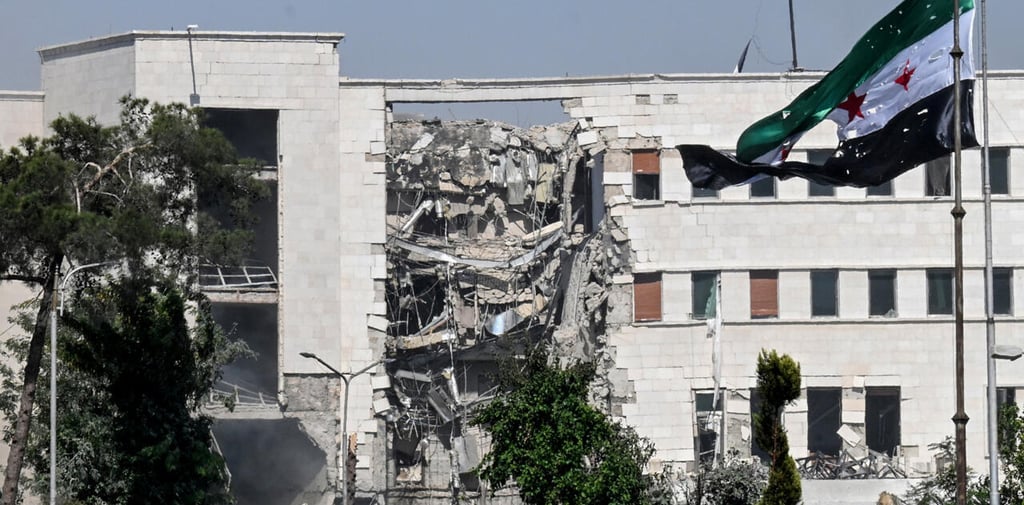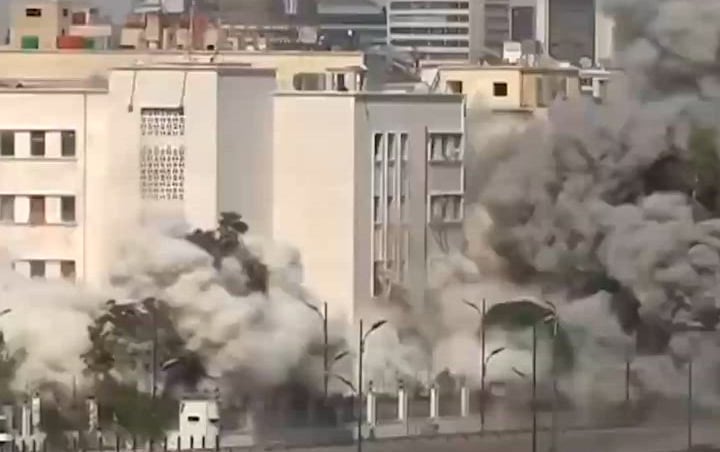Caught in the Crossfire: Israeli Strikes in Syria and the Struggle to Protect the Druze
In the dark stillness before dawn, families in Damascus awoke to the sound of explosions. Windows rattled, dogs barked, and the skyline lit up with flashes of fire. For many, it was a familiar terror, a reminder that peace is still a distant dream. This time, the bombs came from Israeli fighter jets targeting military installations deep in Syria. But unlike previous strikes, Israel said this one was about protecting people.
Thinkbrief
7/17/20254 min read


In the dark stillness before dawn, families in Damascus awoke to the sound of explosions. Windows rattled, dogs barked, and the skyline lit up with flashes of fire. For many, it was a familiar terror, a reminder that peace is still a distant dream. This time, the bombs came from Israeli fighter jets targeting military installations deep in Syria. But unlike previous strikes, Israel said this one was about protecting people.
Specifically, Israel claimed the attacks were meant to defend the Druze community in southern Syria. This religious minority has long lived in a quiet corner of the country, trying to stay safe as war raged around them. Now they find themselves in the middle of a dangerous game between nations far more powerful than their small mountain villages.
A Community in the Middle
The Druze are not many, but they are proud. Spread across Syria, Lebanon and Israel, their faith is rooted in ancient traditions and deep loyalty to their land. In Syria, most Druze live in the southern province of As Suwayda. It is a region that for the most part managed to stay away from the worst of Syria’s brutal civil war. But in recent years, even As Suwayda has not been spared.
Armed groups, some reportedly linked to Iran and Hezbollah, have been pushing into the area. Their presence has made both the Druze community and Israeli authorities nervous. Israel has warned that it will not allow those groups to set up bases near its border, especially if it puts the local Druze at risk.
That is the reasoning Israel gave for its latest wave of airstrikes. Targets included military facilities in Damascus and southern Syria. Syrian state media reported damage and casualties, though exact numbers remain unclear. Videos from the ground showed smoke rising from neighborhoods, mothers carrying their children to safety, and frightened elders peering from behind broken doors.
Family Ties Across Borders
In Israel, the Druze are not strangers. They are citizens. Many serve in the Israeli army. They are judges, police officers, teachers and politicians. And they have never forgotten their relatives across the border in Syria.
Over the years, Druze citizens of Israel have urged the government to step in when their kin in Syria were under threat. Sometimes that meant sending quiet medical aid. Sometimes it meant helping protect villages from attack. But this time, the response was far more visible and forceful.
Israeli officials say they had intelligence pointing to an imminent threat from Iranian backed militias near Druze areas in Syria. “We will not stand by and watch as our brothers are put in danger,” one Israeli defense official said, speaking anonymously to local media. “We have a responsibility to act and we did.”
What the Strikes Mean on the Ground
In Damascus and Suwayda, however, things are rarely that simple. For the people living there, these military calculations translate into fear, destruction and more questions than answers. One woman in the Mezzeh district of Damascus said her windows shattered in the blast and her children cried themselves to sleep. “We don’t know why we were bombed. We just want quiet,” she said.
In Suwayda, a Druze community leader spoke to a local radio station, expressing concern that international players were using their people as pawns. “We appreciate the concern but we do not want to become a reason for more war,” he said. “We are not a bargaining chip. We are human beings trying to survive.”
That is the heartbreaking reality. The Druze, like so many others in Syria, are caught between powerful forces including Iran, Israel, the Assad regime, Hezbollah and global powers such as Russia and the United States. They did not ask for this role. They did not pick sides. They just want to raise their children in peace.
A Wider Tension
This latest strike is part of a much larger conflict that stretches from Tehran to Tel Aviv and beyond. Israel has long been targeting what it calls Iranian entrenchment in Syria, a campaign meant to stop weapons from reaching Hezbollah and other proxy forces. It is a campaign that has intensified as tensions rise across the region.
The Syrian government condemned the strikes, calling them illegal and aggressive. Iran and Hezbollah are expected to respond, perhaps not with words but with more conflict. And caught in the middle are civilians who have already lived through more than a decade of war.
Hope in the Shadows
Yet in the middle of all this pain, there are moments of humanity. Israeli Druze families trying to send food and aid across the border. Syrian Druze communities still holding on to their traditions, caring for their elders, keeping schools running and praying for peace.
One man in Suwayda, a schoolteacher, put it simply. “We are tired. We want to live. We want to teach our children history, not become a part of it.”
As the dust settles from this latest round of airstrikes, that quiet wish for normalcy remains the most powerful message of all. In a land where every political move seems to spark fire, the true bravery may lie in those who simply choose to carry on.

